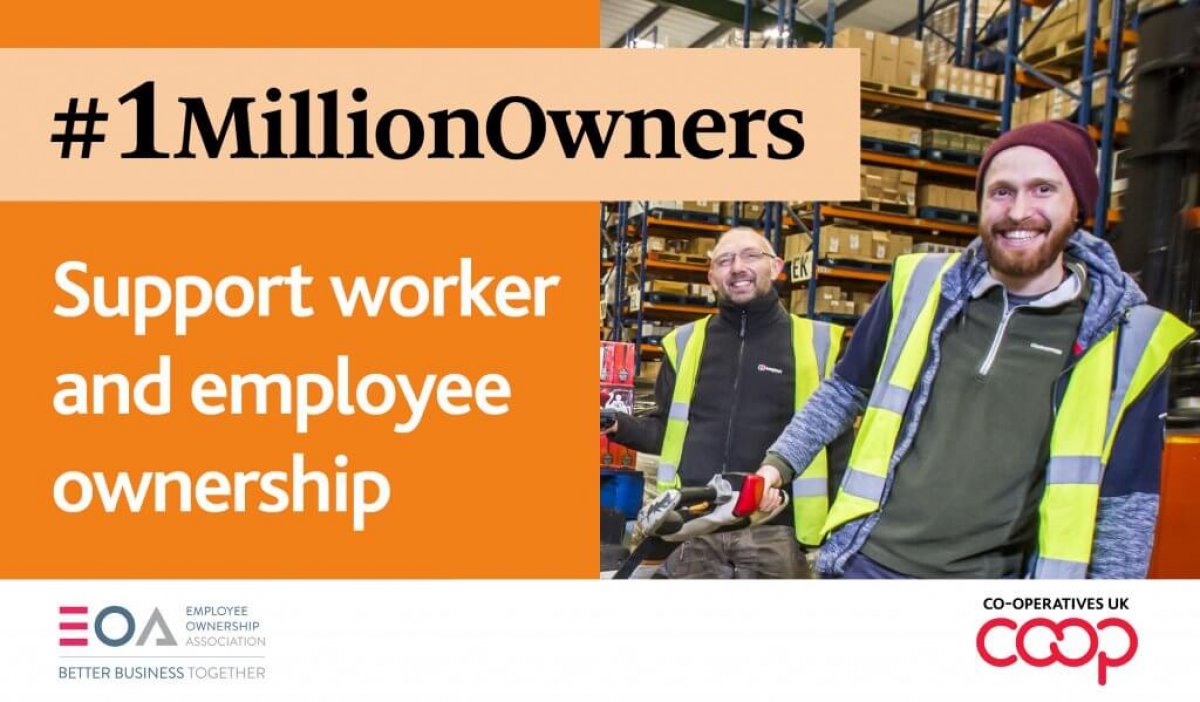We’re behind worker ownership
You may well have heard that Co-operatives UK and the Employee Ownership Association want to create #1MillionOwners by 2020. To support this, they are calling on the UK government to invest £2m in the upcoming spending review to support a voluntary expansion of employee and worker-owned businesses.
We are fully and wholeheartedly behind this. Co-operatives and worker/employee owned businesses create and sustain strong communities, keep money flowing locally and help people take more control of their economic lives. As Ian Rothwell, our Investment Manager says,
‘Worker ownership is at the heart of Co-operative and Community Finance‘s mission. As someone who worked for many years in a worker owned co-operative, I can say without any hesitation that CCF will always do our best to support worker ownership.’
Industrial Common Ownership Finance (ICOF) – the forerunner to Co-operative and Community Finance (CCF) – was born out of a series of informal meetings in Northampton in the early 1970s, inspired by the principles and practice of one of the largest common ownership co-operatives in the UK – Scott Bader – who donated £15k to set ICOF up in 1973. The whole point of the fund at the time was to support worker ownership and democracy.
A successful private member’s bill introduced the 1976 Industrial Common Ownership Act which provided £250,000 of funding to lend to co-operative enterprises. This established ICOF as “the relevant national body for co-operative finance” with central government and demonstrated UK Government recognition of the importance of Co-ops to the economy.
Since then, CCF (including funds it manages for other organisations) has lent to a huge range of worker owned businesses – from large employee owned companies such as Clansman Dynamics and Sutcliffe Play to smaller worker co-ops such as Dynamix and Café Kino along with extremely successful worker owned businesses such as Essential Trading, Co-op Web and Unicorn Grocery
CCF’s Board has a designated place for a representative from the Worker Co-op council and the majority of members have direct experience of working in a worker owned business
In the 1990s, CCF widened the lending to support community-owned business and to help people take more control of their economic lives. This is achieved through lending at risk to enable people to own and democratically control the businesses operating in their own communities. We are delighted to see such a bold an ambitious target as #1MillionOwners and will do everything we can to help achieve it.

